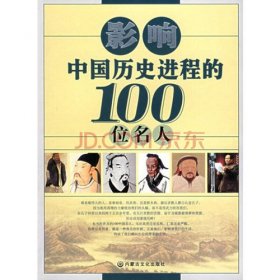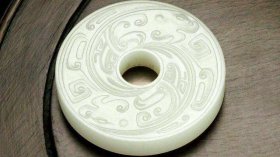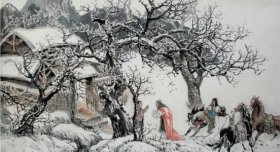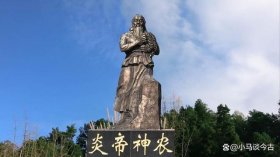《凡物流形》新研(稿)
-
《,凡物流形,》,新研,稿,原文,标题,《,

- 中国历史故事-小虎历史故事网
- 2023-08-29 11:48
- 小虎历史故事网
《凡物流形》新研(稿) ,对于想了解历史故事的朋友们来说,《凡物流形》新研(稿)是一个非常想了解的问题,下面小编就带领大家看看这个问题。
原文标题:《凡物流形》新研(稿)
(佛羅里達大學)
《上博(七)》中刊布的《凡物流形》,有内容大致相同的甲、乙兩本。經過學者的共同努力,該文本的釋讀已經取得了較大的進展。由於甲、乙兩文本大致相同,但是各簡容字又參差不等,兩相對照,為文本銜接和簡序復原提供了很好的綫索。顧史考關於《凡物流形》的兩篇綜合性論文,很好地總結了目前的研究成果。[1]本文是在顧文的基礎上,博采眾說,拾掇賸義,以通讀《凡物流形》文本爲主,並參以己見(為節省篇幅,用箋注的形式),並加以簡易的英文翻譯。對衆多相關討論(尤其是義理方面的)未及辯證,俟諸異日。除非特別説明,本文所涉及(網路)論文和學者討論意見都見於顧文所引,請有興趣者參看。
《凡物流形》甲本較完整,本文中用A加原整理者的編碼在方括號中表示(【A】),乙本估計缺失3支整簡,本文用B加原整理者的編碼在圓括號中表示((B))。釋文隷定用寬式;通假字用(=)表示;古今字用(>)表示;對原簡上的錯字,經改正後的正字用< >表示;據上下文擬補的缺文、奪文用[ ]表示;原簡上的衍文用{ }表示;為減少造字,一些非常見的難字用(+/-偏旁部首)等形式表示其結構。
Transcription
Rimes
Translation
1.
凡物流形,奚得而成?
形*-eŋ
成*-eŋ
All things flow into the form, what do they obtain so that they accomplish?
2.
流形成體,奚得而不死?
體*-i
死*-i
Flowing into the form to have the body, what do they obtain so that they do not die?
3.
既成既生,奚寡(=呱)[2]而鳴?
生*-eŋ
鳴*-eŋ
After they are formed and after they are born, why do [they] cry [as a baby]?
4.
既桕(=齨)既槿(=齗、齦)[3],奚後【A1】{之}奚先?
槿*-ǝn
先*-ǝn
After losing teeth (and becoming hollow) and after teething, which comes last and which first?
5.
陰陽(B1)之處,奚得而固?
處*-a
固*-a
The positioning of the yin and yang, what do they obtain so that they are fixed?
6.
水火之和,奚得而不危?
和*-ai
危*-ai
The mixing of water and fire, what do they obtain so that they are not hazardous?
7.
聞之曰:民人流形,奚得而生?【A2】
形*-eŋ
生*-eŋ
This is what I heard: human beings flow into the form, what do they obtain so that they live?
8.
流形成體,奚失而死?[4]
體*-i
死*-i
Flowing into the form, what do they lose so that they die?
9.
国画中国历史故事
有得而成,未(B2)知左右之請(=情)[5]。
成*-eŋ
請*-eŋ
Having obtained and accomplished, [but they] don’t know the nature (the condition) of the left and right.
10.
天地立終立始:天降五度[6]乎?奚【A3】衡奚縱?
始*-ǝ
乎*-a
縱*-oŋ
The heaven and the earth stand at the beginning and end. Does the heaven send down the five rules (dimensions?)? how one is horizontal, how one vertical?
11.
五氣竝至乎?奚異奚同?
乎*-a
同*-oŋ
Do the five qi-vapors arrive simultaneously? How are they different? How are they the same?
12.
五音在人,孰為之(B3)公(=聾)[7]?
公*-oŋ
The five sounds reside within human beings, which one makes people deaf?
13.
九交[8](=竅)出

《凡物流形》新研(稿)
封*-oŋ
From the nine apertures comes out the stratagems (i.e. intelligence), how can [they] be sealed?
14.
吾既長而【A4】或老,孰為箭(=薦)奉?
奉*-oŋ
After I grow and become old (i.e. dead), who will offer [me food]?
15.
鬼生於人,奚故神明?
明*-aŋ
Ghosts derive from human beings, why do [they] become divinely numinous?
16.
骨肉之(B4)既靡,其智愈彰,
彰*-aŋ
After the flesh and bone disintegrate, why does their intelligence become brighter?
17.
其(B11b)夬(=決、訣[10])奚適,孰知【A5】其疆?
疆*-aŋ
Where do the departed go? Who knows their borders?
18.
鬼生於人,吾奚故事之?
之*-ǝ
Ghosts derive from human beings, why should I serve them?
19.
骨肉之既靡,身體不見, 吾奚自食之?
之*-ǝ
After the flesh and bone disintegrated, no longer can their bodies be seen, why should I voluntarily feed (=offer sacrifices to) them?
20.
其來無度,【A6】(B5)吾奚時之?
之*-ǝ
Their coming cannot be predicted, how can I time [the sacrifices]?
21.
塞[11]祭員(異?=禩=祀)奚

《凡物流形》新研(稿)
登*-ǝŋ
飽*-uʔ
Why should [I] perform requital sacrifices? How can I make [them] satisfied?
22.
順天之道,吾奚以為頁(首)?
道*-uʔ
首*-uʔ
Following the Way of the heaven, what should I treat as the principal?
23.
吾(B6)欲得【A7】百姓之和,吾奚事之?
和*-ai
之*-ǝ
I want to gain the harmony of the hundred clans, what should I do?
24.
敬(?)天之明奚得?鬼之神奚食?先王之智奚備?
得*-ǝk
食*-ǝk
備*-ǝk
How [can I] obtain the brightness of the heaven? What do the spirits of the ghosts eat? How [can I] possess the intelligence of the former kings?
25.
聞之曰:登【A8】高從埤,至遠從邇。
埤*-e
邇*-e
This is what I heard: To climb the high one starts at the bottom, to reach the farther one starts from the near.
26.
十囘(圍)之木,其始生如蒴[14](=櫱)。
木*-ok
櫱*-at
A tree truck girths ten arm spans around, [but] at its beginning it just like a shoot from the stump of a tree.
27.
足將至千里,必(B7)從寸始。
里*-ǝ
始*-ǝ
Walking a thousand miles, one must start with the first inch.
28.
日之有【A9】耳(珥),將何聽?
珥*-ǝ
聽*-eŋ
The sun has the ear (i.e. solar prominence), but what it will hear?
29.
月之有軍(=暈),將何正(=征)?
正*-eŋ
The moon has a troop/halo (i.e. lunar halo), but where it will go for expedition?
30.
水之東流,將何盈?
盈*-eŋ
[All] rives flow eastward, but what will they fill?
31.
日之始出,何故大而不𦑥[15](=暑)?
出*-ut
暑*-a
When the sun just rises, why it is big but not hot?
32.
其<人>(入)【A10】中,奚(B8)故小㢈[16]<而>暲脰[17]?
中*-uŋ
脰*-o
When it enters the middle (i.e. the noon), why it becomes small but hot (literally: burning the neck)?
33.
問:天孰高歟,地孰遠歟?[18]
歟*-a
歟*-a
[One] askes: Is the heaven high? Is the earth vast?
34.
孰為天?孰為地?
天*-in
地*-ai
Who is the heaven? Who is the earth?
35.
孰為雷【A11】電?孰為帝?
電*-in
帝*-e
Who are the thunder and the lightning? Who is the God?
36.
土奚得而平?水奚得而清?
平*-eŋ
平*-eŋ
How was the earth leveled? How did the water become clear?
37.
卉(草)木奚得而生?【A12a】禽獸奚得而鳴?【B13b】
生*-eŋ
鳴*-eŋ
How did the grasses and the three grow? How did the birds and animals cry?
38.
夫雨之至,孰唾[19]津(?)之?
之*-ǝ
When the gusts of rain come, who is spiting (i.e. ejects saliva)?
39.
夫風之至,孰皮(+風=披)習(+風=襲)[20]而迸(=騁)[21]之?
之*-ǝ
When the gusts of wind come, who is cloaking/wearing the wind and ride on it?
40.
聞之曰:(B9)察道,坐不下席, 耑(=端)冕[22],(B10a)【A14】書(=佇)不與事。之(=先)知四海,至(=致)聽千里,達見百里。
事*-ǝ
海*-ǝ
里*-ǝ
里*-ǝ
This is what I heard: To know the Way, [one] sits without leaving the mat, just as you are dressed for ceremony, you stand in attendance and do not participate in the [detailed] affairs. But one can predict everything within the four seas, hear everything within thousand miles, and see everything with in hundred miles.
41.
是故聖人處於其所,邦(B11a)家之【A16】危安(?)存亡,賊盜之作,可先知。[23]
所*-a
作*-ak
知*-e
This is why the sage staying in where he stays, [but] he can predict the ups and downs of the state and the family, and the rise of the robbers.
42.
聞之曰:心不勝心,六<
大>亂乃作;心如能勝心,(B19)【A26】是謂小徹。
心*-ǝm
作*-ak
心*-ǝm
徹*-et
This is what I heard: If the mind cannot overcome the mind, great disaster will come; if the mind can overcome the mind, this is called small understanding.
43.
奚謂小徹?人白為察[24](=識?)[25]。奚以知其白?終身自若。
徹*-et
察*-et
白*-ak
若*-ak
What is small understanding? Other people think it is white. But by what means do they know that it is white? For all your life, you possess yourself.
44.
能寡言乎? 能一【A18】乎? [26] 夫(B13a)此之謂小成。[27]
乎*-a
乎*-a
成*-eŋ
Can you say less? Can you concentrate? This is called small accomplishment.
45.
曰:百姓之所貴唯君,君之所貴唯心,心之所(B20)貴唯一。
君*-ǝn
心*-ǝm
一*-it
[One says:] what the hundreds clans value is only the lord, what the lord value is only the mind, what the mind vale is only the One.
46.
得而解之(B21),上【A28】賓於天,下番於淵。[28]
天*-in
淵*-in
If you gain it and understand it, you can go up to visit the heaven, and go down to the abyss.
47.
坐而思之,每(=謀)於(B10b)千里;起而用之,申(=伸、陳)於四海。
之*-ǝ
里*-ǝ
之*-ǝ
海*-ǝ
Sit and think about it, one can plan within thousand miles; stand up and use it, one can extend it to the four seas.
48.
聞之舌(=曰)[29]:至情(=靜)而知,[30]【A15】察知而神,察神而同(=動)[31],[察同(=動)]而僉(=險)[32],察僉(=險)而困,察困而復。
知*-e
神*-in
同*-oŋ
僉*-am
困*-un
復*-uk
This is what I heard: if you possess extreme tranquility, then you will understand it; examine your understanding, then you will be inspired; examine your inspiration, then you will act on it; examine your action, then you will know the danger; examine the danger, then you will know the difficulty; examine the difficulty, then you can return.
49.
氏(=是)故陳為新,人死復為人,水復【A24】(B17)於天。
新*-in
人*-in
天*-in
This is why the old is new, after people died they become human beings again, and water return to the heaven.
50.
凡百物不死,如月出則或(=又)入,終則或始,至則或反。
死*-iʔ
入*-ǝp
始*-ǝ
反*-anʔ
The hundred things won’t die, just as the moon appears but disappears again, ends but starts again, comes but returns again.
51.
察此言,起於一端。【A25】
言*-an
端*-wan
Understand these words, all begins with the One.
52.
聞之曰:一生兩(二),(B18兩)(二)生參,參生四,四成結。[33]
一*-it
生*-eŋ
二*-is
二*-is
生*-eŋ
參*-ǝm
參*-ǝm
生*-eŋ
四*-is
四*-is
成*-eŋ
結*-it
This is what I heard: One begets two, two begets three, three begets four, four begets a knot (?).
53.
是故有一,天下無不有;無一,天下亦無一有。
一*-it
有*-ǝʔ
一*-it
有*-ǝʔ
Thus if the One exists, all under heaven have it; if the One doesn’t exist, neither have all under heaven.
54.
無【A21】[目?]而知名,無耳而聞聲。
名*-eŋ
聲*-eŋ
Having no eyes (?) but it knows the names; having no ears but it hears sounds.
55.
草木得之以生,禽獸得之以鳴。
生*-eŋ
鳴*-eŋ
Obtaining it, grasses and trees are able to grow; birds and animals are able to sing.
56.
遠之干[34]【A13a】天,近之干人,[35]是故【A12b】察道,所以攸(修)身而治邦家。
天*-in
人*-in
道*-u
家*-a
In distance, seek it in the heaven; nearby, seek it in human. Thus understanding the Way is the way to cultivate your own body and organize the state and the family.
57.
聞之曰:能察一,則百物不失;如不能察一,則【A22】百物具失。
一*-it
失*-it
一*-it
失*-it
This is what I heard: if you are able to understand the One, then nothing will be lost; if you can’t understand it, then everything will be lost.
58.
如欲察一,卬(=仰)而視之,俯(?)而揆(?)之,毋遠求,度(B15)於身旨(=稽)之。[36]
一*-it
之*-ǝ
之*-ǝ
之*-ǝ
If you want to understand the One, look up then you will see it, look down you will grab it. You don’t have to seek it far, just measure yourself and consider it.
59.
得一[而]【A23】圖之(B16),如并天下而抯(=取)之;得一而思之,若并天下12而治之。
之*-ǝ
之*-ǝ
之*-ǝ
之*-ǝ
Obtain the One and plan for it, just as combine all under heaven and take it; obtain the One and think about it, just as combine all under heaven and organize it.
60.
守(?)一以為天地旨。【A17】是故一。[37]
旨*-iʔ
一*-it
[So] embracing the One, take it as the purport of the heaven and earth. This is why it is the One.
61.
虘(+又=咀)之有味,嗅[之有臭],鼓之有聲(B13b),近之可見,操(?)之可謀(操?[38])。
味*-ǝs
臭*-u
聲*-eŋ
見*-en
操*-au
You chew it, it has flavors; smell it, it has scents; drum it, it has sounds; close up, you can see it; handle (?) it, you can …(?) it.
62.
彔(+手=握)[39](B14a)之則失,敗(=伐)之則【A19】高(=槁),[40]測之則滅。
失*-it
高*-au
滅*-et
If you squeeze it, you will lose it. If you cut it, it will die. If you measure it, it will extinct.
63.
察此言,起於一端。
言*-an
端*-wan
Understand these words, all begins with the One.
64.
聞之曰:一言而力(?)不窮,一言而有衆(=中)【A20】;{衆}
窮*-uŋ
衆*-uŋ
This is what I heard: One word can have endless power; one word can hit the target.
65.
一(B14b)言而萬民之利,一言而為天地旨。[41]
利*-ih
旨*-iʔ
One word is ten thousand people’s benefit; one word is the purport of the heaven and earth.
66.
握之不盈握,敷之無所容(?)。[42]大【A29】之以知天下,小之以治邦。(B22)
容*-oŋ
邦*-oŋ
If you grasp it, it won’t fill your hand; spread it, nowhere can contain it. Enlarge it, it can be used to understand all under heaven; diminish it, it can be used to rule a state.
67.
之子古之人乃 下上【A30】
(gibberish)
(編者按:[1]顧史考 (Scott Cook),“上博簡〈凡物流形〉初探”,傳統中國形上學的當代省思”國際學術研討會論文,臺北:臺灣大學哲學系主辦,2009年5月7-9日,收入《國立臺灣大學哲學論評》38(2009),1-32頁,以及“上博七〈凡物流形〉下半篇試解”,出土文獻與傳世典籍的詮釋——紀念譚樸森先生逝世兩周年國際學術研討會(2009年6月13日-14日) 論文,復旦大學出土文献与古文字研究中心網站,2009年8月24日。本文是為本年5月16-18日在賓州州立大學舉辦的楚簡研讀班而準備。在寫作和修改中得到白一平、陳偉、顧史考、許思萊等先生的幫助,謹致謝忱。
[2]原整理者(曹錦炎)之說,“寡”“呱”雙聲叠韻。本章以赤子為喻。
[3]此句多數學者釋為“既本既根”,但沒有說解。“桕”字從臼在木上,與《上博(四)》中的《曹沫之陳》第20號簡從臼在木上的字,以及《行氣銘》從本在臼上的“本”字等,同形或形近,但恐非一詞。此處“桕”字讀為“齨”。《說文解字》: “齨,老人齒如臼也。一曰馬八嵗齒臼也。從齒從臼,臼亦聲。”段玉裁注:“馬八歲曰𩡩,齒亦如臼,俗名之齨。亦作𩢹。”又“臼”字條下,段注“引伸凡凹者曰臼。”槿,依聲韻讀為“齗”或“齦”。《說文解字》:“齗,齒本也,從齒斤聲。齗齗,齒出貌。”段注:“露其齒本”。此處是指老人掉牙和嬰兒出乳牙,人生頭尾的兩個階段,孰後孰先?
[4]馬王堆帛書《十問》: “黄帝问於容成曰:‘民始蒲(敷)淳溜刑,何得而生?溜刑成体,何失而死?”
[5]馬王堆帛書《十問》: “黃帝問於天師曰:“万勿 (物)何得而行?草木何得而長?日月何得而明?”天師曰:“壐(爾)察天地之請(情),陰陽爲正,万勿(物)失之而不繼,得之而贏。” “天地之情”又見《莊子》《周易》《禮記》等先秦文獻。
[6]從陳偉說,《鶡冠子•天權》:“五度既正,無事不舉。”
[7]對此句說解有許多不同的猜測,但沒有音韻切合,正中主題的合理解釋。此處應是說五音是人發出來的聲音,爲什麽又會使人耳聾?《老子·道经》:“五音令人耳聾”。公,見紐東部;聾,來紐東部,古音至近。
[8]此字

《凡物流形》新研(稿)

《凡物流形》新研(稿)

《凡物流形》新研(稿)

《凡物流形》新研(稿)

《凡物流形》新研(稿)

《凡物流形》新研(稿)

《凡物流形》新研(稿)

《凡物流形》新研(稿)
[9]《管子·水地》:“男女精氣合,而水流形。三月如咀,咀者何?曰五味。五味者何,曰五藏。酸主脾,鹹主肺,辛主腎,苦主肝,甘主心。五藏已具,而後生肉。脾生隔,肺生骨,腎生腦,肝生革,心生肉。五肉已具,而後發為九竅:脾發為鼻,肝發為目,腎發為耳,肺發為竅,五月而成,十月而生;生而目視耳聽心慮;目之所以視,非特山陵之見也,察於荒忽。耳之所聽,非特雷鼓之聞也,察於淑湫。心之所慮,非特知於粗粗也,察於微眇。故修要之精。是以水集於玉,而九德出焉。凝蹇而為人,而九竅五慮出焉。此乃其精也。” 楚簡此處的“謀”,義即《管子·水地》的“慮”,“九竅出謀”,義即“九竅出慮”。此處蓋以古代喪葬中封塞九竅的禮俗為說。春秋戰國時期的墓葬中,零星出土過玉制的耳塞、鼻塞和肛門塞等,但完整的九竅玉塞則見於西漢中山靖王劉勝夫婦墓中。劉勝的九竅塞包括眼蓋、耳塞、鼻塞各兩件,口塞、肛門塞、玉琮改制的生殖器罩盒各一件,共九件。但據《儀禮·士喪禮》“瑱用白纊”,則九竅塞也可能用紡織品等易腐材質製作,因此考古遺存中不易見到。由楚簡可知,使用“九竅塞”的葬俗可以至少上推到戰國時期。這一葬俗的出現應與氣論的流行有關。此句與下文
中国历史漫画故事腾讯
“鬼生於人,奚故神明?”“骨肉之既靡,其智愈彰”相呼應。人死後是否有知(智),這是先秦諸子爭論的焦點之一。顯然《凡物流形》提問的前提,就是承認人死後有知(智)的。[10]從張崇禮說。
[11]此字

《凡物流形》新研(稿)
[12]《漢書·列傳第43》:“又祭祀之義以民為本,間者歲數不登,百姓困乏,郡國廟無以修立。”
[13]《說文解字》: 古文飽从卯聲。
[14]此字的聲符是“月”,而不是“朔”。
[15]此字

《凡物流形》新研(稿)

《凡物流形》新研(稿)

《凡物流形》新研(稿)
[16]此字待考。根據上下文,此處似應為“而”字。
[17]古語有“章灼”一詞,明亮,光明之義。章(暲),灼也。脰,項也。
[18]參考:《莊子•天運》:“天其運乎?地其處乎?日月其爭於所乎?孰主張是?孰維綱是?孰居無事,推而行是?意 者,其有機緘而不得已邪?意者其運轉而不能自止邪?雲者爲雨乎?雨者爲雲乎?孰隆施是?孰居無事,淫樂而勸是?風起北方,一西一東,有上彷徨,孰噓吸是? 孰居無事,而披拂是?敢問何
小度讲中国历史故事在线听
故?”[19]雨+𠈌+乇 = 唾OCM*thôih = 𠈌(垂) OCM*doi +乇OCM *trâk。
[20]皮(+風)習(+風)=披襲。《楚辭·九懷·昭世》有“襲英衣兮緹䌌,披華裳兮芳芬”。今猶有“披風襲月”一語。
[21]迸=并(幫紐耕部)與騁(透紐耕部)古音至近。
[22]“端冕”一詞古書多見,玄衣大冠,指盛服而祭;“坐”與“佇”(久立)相對。從顧史考、李銳說。
[23]參考:馬王堆帛書《老子》:“不出户,知天下。不闚牖,見天道。其出彌遠,其知彌少。是以聖人不行 而知,不見而名,不爲而成。”
[24]曹峰以为“人白”是“人通過‘潔官’、‘虛欲’以潔白其心,屬于一種養心之術。”恐非是。此处的“人白爲察”當與古書常見之“堅白論”的“白”有關。下面緊接著問的,也是認識論上的問題,“人是怎麽知道那是‘白’?”曹說見“《凡物流形》的‘少徹’與‘少成’”,簡帛研究網2009年01月09日。
[25]古書皆作“察”;但此字是否可能本來就是“察”,或為“識”,待考。《荀子·修身篇第二》:“夫‘堅白’、‘同異’、‘有厚無厚
中国历史人物故事黄帝
’之察,非不察也,然而君子不辯,止之也。”[26]參考:《管子·内業》:“摶氣如神,萬物備存。能摶乎?能一乎?能無卜筮而知吉凶乎?能止乎?能已乎?能勿求諸人而得之己 乎?思之,思之,又重思之。思之而不通,鬼神將通之。非鬼神之力也,精氣之極也。”《管子·心術下》:“專於意,一於心,耳目端,知遠之近。能專乎?能一乎?能毋卜筮而知凶吉乎?能止乎?能已乎?能毋問於人而自得之於己乎?故曰:思之。思之不得,鬼神教之。非鬼神之力也,其精氣之極也。”
[27]《禮記·學記》:“古之教者。家有塾。黨有庠。術有序。國有學。比年入學。中年考校。一年視離經辨志。三年視敬業樂群。五年視博習親師。七年視論學取友。謂之小成。九年知類通達。強立而不反。謂之大成。”《莊子·齊物論》:“道隱于小成,言隱于榮華。”
[28]參考:《管子·内業》:“道滿天下,普在民所,民不能知也。一言之解,上察於天,下極於地,蟠滿九州。”《心術下》:“是故聖人一言解之,上察於天,下察於地。”
[29]此字

《凡物流形》新研(稿)

《凡物流形》新研(稿)

《凡物流形》新研(稿)

《凡物流形》新研(稿)

《凡物流形》新研(稿)

《凡物流形》新研(稿)

《凡物流形》新研(稿)

《凡物流形》新研(稿)

《凡物流形》新研(稿)

《凡物流形》新研(稿)

《凡物流形》新研(稿)
[30]參考:《吕氏春秋·君守》:“得道者必靜。靜者無知,知乃無知,可以言君道也。故曰中欲不出謂之扃,外欲不入謂之閉。既扃而又閉:天之用密,有准不以平,有繩不以正;天之大靜,既靜而又寧,可以為天下正。身以盛心,心以盛智,智乎深藏,而實莫得窺乎。鴻範曰:‘惟天陰騭下民。’陰之者,所以發之也。故曰不出於戶而知天下,不窺於牖而知天道。其出彌遠者,其知彌少,故博聞之人、強識之士闕矣,事耳目、深思慮之務敗矣,堅白之察、無厚之辯外矣。不出者,所以出之也;不為者,所以為之也。此之謂以陽召陽,以陰召陰。東海之極,水至而反;夏熱之下,化而為寒。故曰天無形,而萬物以成;至精無象,而萬物以化;大聖無事,而千官盡能。此乃謂不教之教,無言之詔。”《莊子》、《淮南子》、《荀子》等先秦古籍均有“得道者必靜”的思想,且常以鏡(或止水)為喻,討論見戴密微(Paul Demiéville), “The Mirror of the Mind,” in Peter N. Gregory, ed. Sudden and Gradual: Approaches to Enlightenment in Chinese Thought, University of Hawaii Press, 1987, pp. 17-22.
[31]參考:《淮南子·原道訓》“人生而靜,天之性也。感而後動,性之害也。物至而神應,知之動也。知與物接,而好憎生焉。好憎成形,而知誘於外,不能反己,而天理滅矣”。
[32]參考:《周易》“動乎險中。”《淮南子·詮言》:“動之為物,不損則益,不成則毀,不利則病,皆險也,道之者危。”
[33]筆者認爲此句在字面上並沒有什麽深刻的哲學寓意。這是一句順口溜(wordplay)。用白一平-沙加爾的上古音構擬系統 (Baxter-Sagart OC reconstruction, version 0.99) 表示:
*ʔi[t] + *sreŋ + *ni[j]-s; *ni[j]-s +*sreŋ + *səm; *səm +*sreŋ + *s.li[j]-s; *s.li[j]-s + *m-[d]eŋ + *kˤi[t].
這裡不但“一”和“結”押韻,“生”和“成”、“二”和“四”也押韻(這裡“兩”必讀“二”,應是同義換讀),而且加上“生”和“生”、“ 參”和“參”形成一組嚴格整齊的上下(或左右)對稱的音韻(押韻)結構。再加上連讀音變,就成了以一個以“一”為中心的語音的循環,所以緊接著的下文才說,“是故有一,天下無不有;無一,天下亦無一有”。“結”可以理解為打結的“結”,連結的“結”。沈培認爲“結”是“終結”的意思,“然後又從‘一’開始循環往復的意思,就像一年有四時不斷循環往復一樣”,這當然也可以。但這裡沒有必要一定説“四”就是“四時”。這只是一句順口溜,重點在語音上押韻順口。漢語口語中的順口溜中經常以一二三四等數字起首,其實並無哲學深意。如五十年代初抗美援朝時期流行的兒歌順口溜:“一二三四五,上山打老虎,老虎不吃人,專吃杜魯門”,“五”和“虎”、“人”和“門”分別押韻。類似的例子還不少。沈培說見秦樺林,“《凡物流形》第二十一簡試解”,復旦簡帛網2009年01月09日後面的討論。
[34]古文字材料中,“屰”是倒“人(大)”,“干”是倒“矢”。干,求也。
[35]《周易·系辭下》:“近取諸身,遠取諸物。”
[36]《鶡冠子》曰:“天地陰陽,取稽於身,故布五正以司五明,十變九道,稽從身始。五音六律,稽從身出,五五二十五,以理天下,六六三十六,以為歲式。氣由神生,道由神成。
[37]此處原簡上有一橫划。
[38]此字甲本似從“某”,但乙本從“喿”。
[39]彔(來紐屋部)、握(影紐屋部),古音至近。
[40]敗、伐,都是並紐月部字,古音雙聲叠韻。參考:《淮南子·主術》“丘陵阪險不生五穀者,以樹竹木,春伐枯槁,夏取果蓏,秋畜疏食,冬伐薪蒸,以為民資。”
[41]參考:《管子·内業》:“一言得而天下服,一言定而天下聽”。
[42]參考:《淮南子·原道》:“故植之而塞於天地,橫之而彌于四海,施之無窮而無所朝夕。舒之幎於六合,卷之不盈於一握。” (责任编辑:admin)
原文出处:http://his.newdu.com/a/201711/05/514072.html
以上是关于《凡物流形》新研(稿)的介绍,希望对想了解历史故事的朋友们有所帮助。
本文标题:《凡物流形》新研(稿);本文链接:http://gazx.sd.cn/zggs/26935.html。
猜你喜欢
- 延禧攻略-《延禧攻略》富察皇后怎么死的? 2023-08-09
- 西游记-揭秘:《西游记》中的美女为何都喜欢嫁给丑八怪 2023-10-22
- 西游记-用“平等观念”来看待《西游记》里的“人妖仙” 2023-10-22
- 牡丹亭-解密:汤显祖的代表作《牡丹亭》有何具体内容? 2023-10-22
- 红楼梦-《红楼梦》中的贾府是如何从一片向荣走向灭亡 2023-10-22
- 牡丹亭-解密:汤显祖的代表作《牡丹亭》有何思想内容 2023-10-22
- 艺术-解密:汤显祖的代表作《牡丹亭》有何艺术特色? 2023-10-22
- 牡丹亭-《牡丹亭》的历史影响:该如何评价《牡丹亭》? 2023-10-22
- 长生殿-戏剧《长生殿》简介:清初剧作家洪昇的代表作 2023-10-22
- 水浒传-被误解的《水浒传》人物绰号:黑旋风李逵也上榜 2023-10-22


















